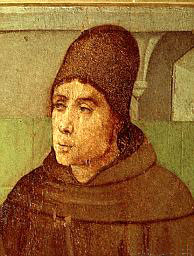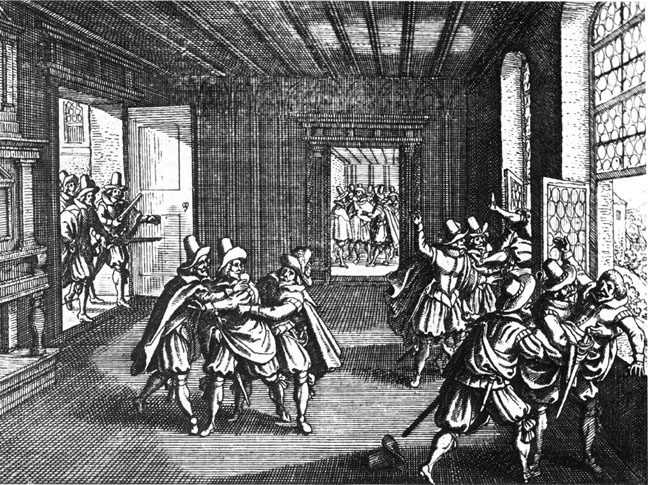

Ever read a novel then read some reviews and wonder if you read the same book as the reviewers? That's what happened to me recently after reading Cormac McCarthy's
The Road
. I haven't read any of McCarthy's other books. None of them sounded all that appealing.
The Road, however, has a sci-fi/fantasy feel to it, a story of life in post-apocalyptic America. I seemed to see it everywhere too, at the grocery store, the book store, the library. Everywhere,
The Road was staring at me, so I checked out a copy at the library.
There has been some debate about the nature of the disaster. Was it natural--a hunk of space rock hitting the earth--or man-made--a nuclear war. McCarthy never says--it doesn't matter that much to the story--but I think a natural disaster makes more sense. The book never mentions anyone suffering from radiation sickness, and as any dinosaur can tell you, space stuff can cause world-wide devastation. The idea that some disaster would kill off all life except humans did not ring true for me. Flies and cockroaches will surely outlive us and feast on our rotting cadavers.
The story details a father-and-son journey from somewhere in the northern United States to somewhere on the coast of the southern United States. I think. Place names lose their significance when almost everything has been reduced to burnt out shells and ash. Finding something that isn't a pile of ash--a house or fallout shelter with some canned food--is like finding an oasis in the desert. Their survival depends on finding these oases while avoiding the "bad guys," armed groups who have turned to canabalism. The story is riveting as the pair are forever balancing on a knife edge just to survive.
How does one find the strength to go on living in such an environment? The boy was born shortly after the calamity. He has known only a world of devastation. His father tries to tell him what life used to be like. The father tells stories, "Old stories of courage and justice as he remembered them" (p. 41). In a flashback, we are told that the boy's mother lost hope and committed suicide. The father finds meaning in keeping his son alive.
The community has suffered a complete breakdown in mutual trust. Everyone is a potential enemy. Is that person a cannibal or one of the "good guys" trying to survive with some sense of humanity and decency intact. Many of the reviewers on Amazon and some of the blurbs on the book jacket suggest that
The Road celebrates the father's love and tenacity. I disagree. The father fails the son, and the son's ultimate survival hinges on understanding that failure.
The father and son meet various individuals and groups on their journey. In a couple harrowing instances, they come close to becoming someone's meal. In the first incident, a truck carrying armed men breaks down where the father and son are hiding along the road. One of the men stumbles on their hiding place and the father shoots him with a pistol. In the other incident, they explore an old house and stumble upon a group of prisoners awaiting slaughter. The father and son barely escape the house before the cannibals arrive to investigate. The father does nothing to help the victims in this case, although to be fair his options are very limited.
In other cases, they meet less threatening people. They see a man who has been struck by lightening stumble across the road. The father assures the boy that there is nothing they can do to help him. Later, they meet an old man shuffling along the road. The boy insists that they give the man some of their food. The father reluctantly agrees. After reaching the coast, their cart, full of provisions, is stolen while they are away from their camp. The pair track down the thief, a single man armed with a butcher knife who is missing all the fingers on his right hand. The father threatens the thief with their pistol, forcing him to remove all his clothes and put them in the cart. The thief begs for mercy and the boy cries, but the father leaves the man naked and shivering on the road. The son continues to cry. The father tries to reason with him but to no avail.
"What do you want to do?"
"Just help him, Papa. Just help him" (p. 259).
The father relents. They can no longer find the man but leave his shoes and clothes on the road. Later that night, the father argues that he had no intention of killing the thief. "But we did kill him" counters the boy (p. 260).
A bit of dialogue toward the end of the story is particularly telling regarding the impact of all these events on the son.
"Do you want me to tell you a story?" [asked the father]
"No."
"Why not?"
The boy looked at him and looked away.
"Why not?"
"Those stories are not true."
"They dont have to be true. They're stories."
"Yes. But in the stories we're always helping people and we dont help people" (pp. 267-8).
Alarm bells should be going off in your head at this point. This conversation is the crux of the story. McCarthy has devoted his life to telling stories so unless he's a major fraud, I seriously doubt McCarthy believes stories have no truth in them. The son realizes that in the interest of survival, the father has thrown out all the lessons from the stories. He is little better than the "bad guys." The father is doing nothing to foster trust or community which is ultimately key to survival.
Eventually the father succumbs to the ash which has poisoned his lungs. Before he dies, the father tells the son:
"Keep the gun with you at all times. You need to find the good guys but you cant take any chances. No chances. Do you hear?" (p. 278).
This is terrible advice. Taking a chance, trusting someone he doesn't know, is precisely what the boy
must do to find the "good guys." After his father's death, the boy meets a man on the road. The man asks the boy to come with him.
"How do I know you're one of the good guys?" [asked the boy]
"You dont. You'll have to take a shot" (p. 283).
The boy takes a chance. He follows the stranger and finds love and security among a new group of people. And there the story ends.



